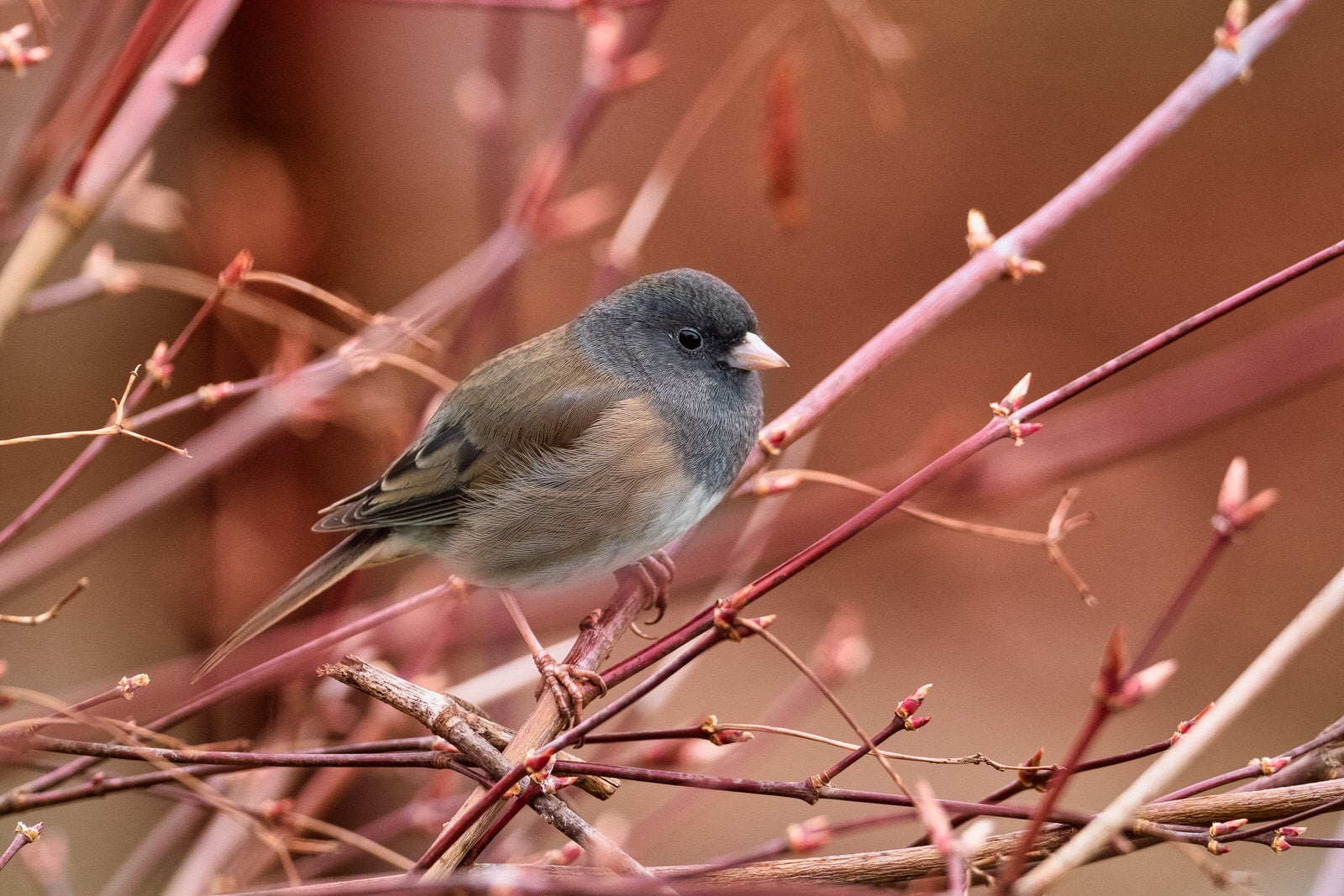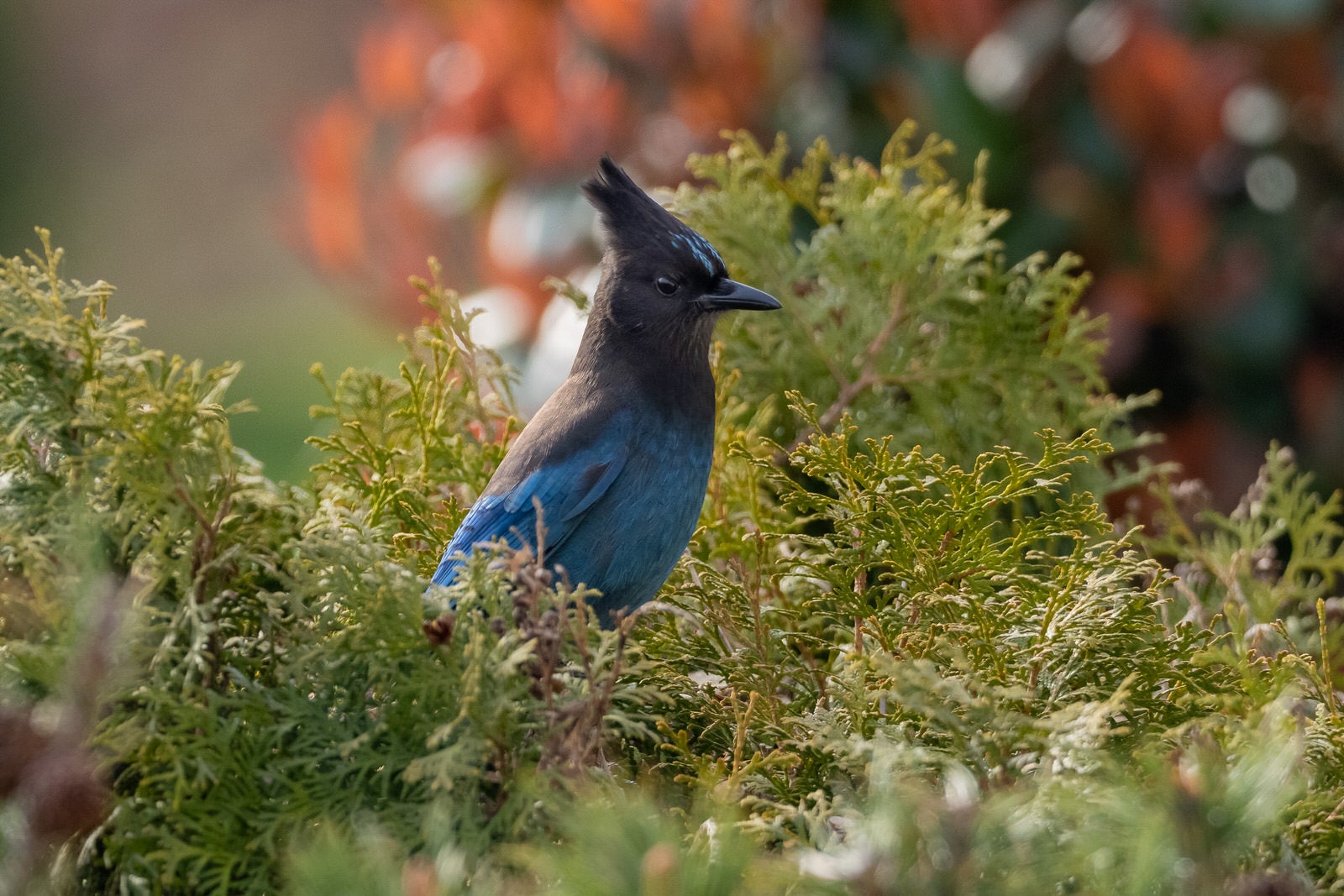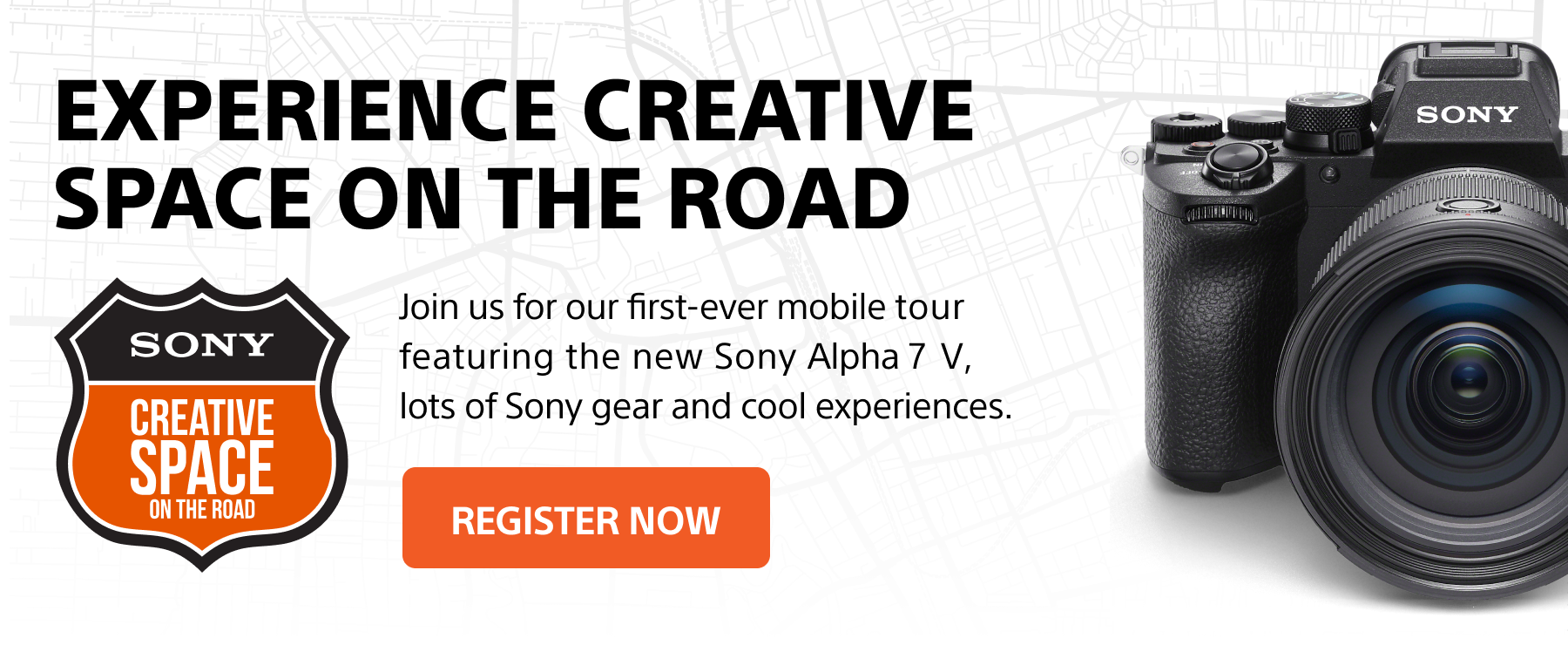With recent world events, we are all spending a lot more time at home, practicing social distancing. This gives us ample opportunity to be with loved ones, learn a new skill online, and enjoy our immediate environment. Personally, I (@starvingphotographer), have been spending a lot more time in my backyard and going for walks around our neighborhood. It’s early spring – flowers are blooming and birds are chirping! We set up a few bird feeders in our backyard, and I’ve been using my Sony α6600 camera with the Sony 70-350mm f/4.5-6.3 G lens to capture some cool shots of our neighborhood feathered friends. I wanted to share my experience with you as well as some recent images from this camera-lens combination.
Mahesh Thapa (@starvingphotographer) of the Alpha Collective uses the Sony 70-350mm f/4.5-6.3 G lens for backyard bird photography & shares his thoughts on its performance.
Photo by Mahesh Thapa. Sony α6600. Sony 75-350mm G lens at 350mm (525mm effective). 1/250-sec., f/6.3, ISO 1600.
Key Lens Specifications
- Mount – Sony E-mount
- Format – APS-C
- Focal length (mm) – 70-350
- 35mm equivalent focal length (mm) – 105-525
- Max/Min aperture (f) – 4.5-6.3/22-32
- Minimum focus distance – 3.61-4.93 ft (1.1-1.5 m)
- Filter diameter (mm) – 67
- Image Stabilization – Optical SteadyShot
- Dimensions (diameter x length) – 3-1/8 x 5-5.8” x 4” (77 x 142mm)
- Weight – 22.1 oz (625 g)
- What’s in the box – Hood, lens front cap, lens rear cap
Photo by Mahesh Thapa. Sony α6600. Sony 75-350mm G lens at 350mm (525mm effective). 1/250-sec., f/6.3, ISO 400.
Sharpness, Resolution, Distortion, Bokeh & Vignetting
There’s an adage about bird photography: No matter how long the lens, it’s never long enough! Thankfully, an APS-C body multiplies the lens focal length by a factor of 1.5 to provide added reach. For backyard birds, I mount the 70-350mm G lens on my Sony α6600 body. I get an effective maximum focal length of 525mm, which lets me get detailed shots while maintaining a respectable distance from my subjects. The combo offers a good balance of weight and size while the image stabilization ensures tack sharp hand-held shots. The image below is a black-capped chickadee, a small and restless bird. Note the palpable details in the plumage. At 350mm, the background just blurs out into a pleasing softness of colors and patterns. The resolution is strong throughout the zoom range and the vignetting is very comparable to other lenses in this category.
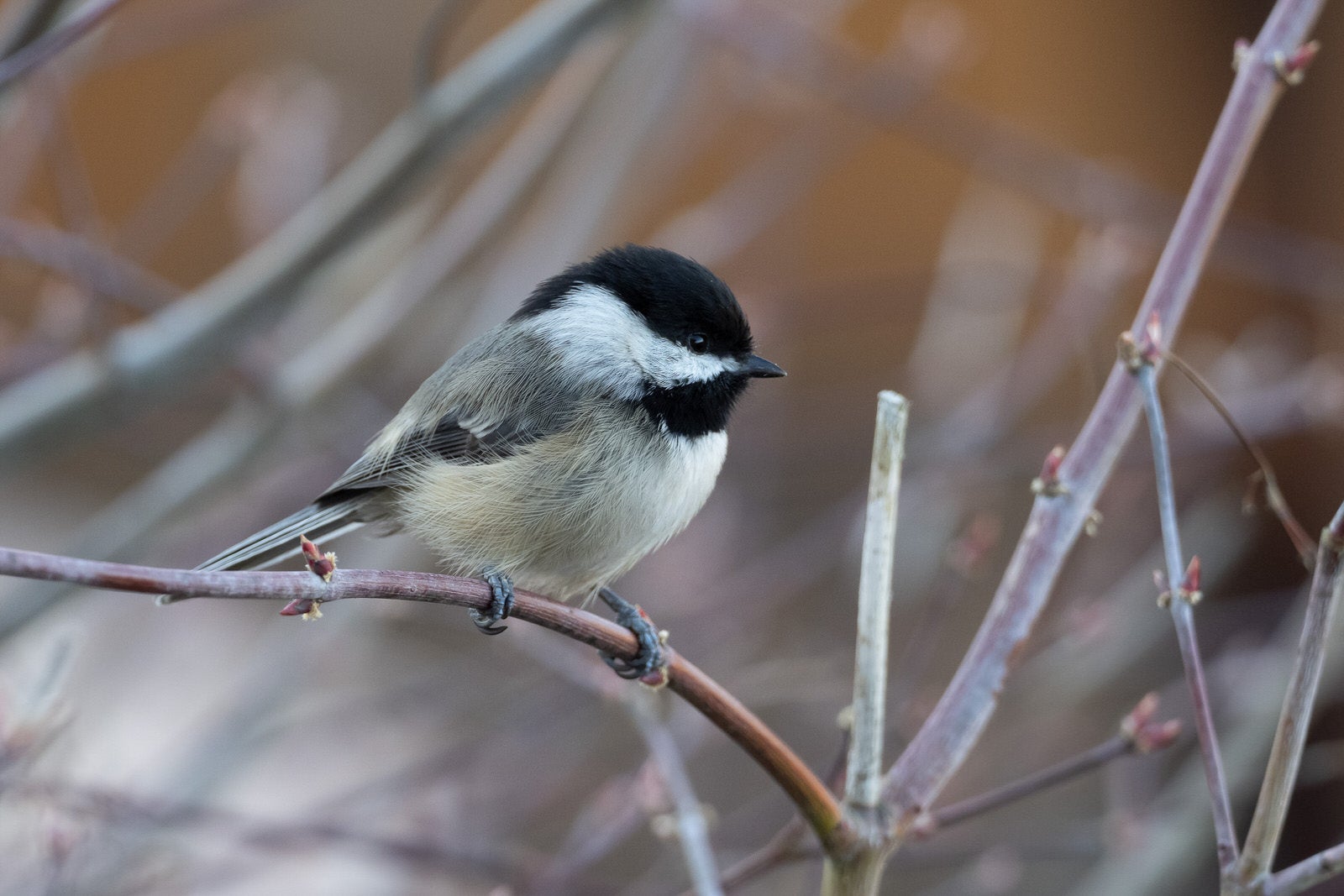
Photo by Mahesh Thapa. Sony α6600. Sony 75-350mm G lens at 350mm (525mm effective). 1/250-sec., f/6.3, ISO 1600.
Shooting with the 70-350mm f/4.5-6.3 G OSS
Weighing in at 625 g (17.5 oz), the lens feels well balanced on the α6600. As you might expect from a Sony G lens, the build quality is exceptional. The manual zoom ring is smooth and well dampened.
I really appreciate the customizable button located on the lens barrel. Via the camera menus, you can assign one of several functions to it. I have it set to eye autofocus. There are also auto/manual focus and OSS on/off switches located directly on the lens barrel. Not having to dive into the menu system to switch from manual to auto focus or to turn the lens stabilization on or off are real timesavers!
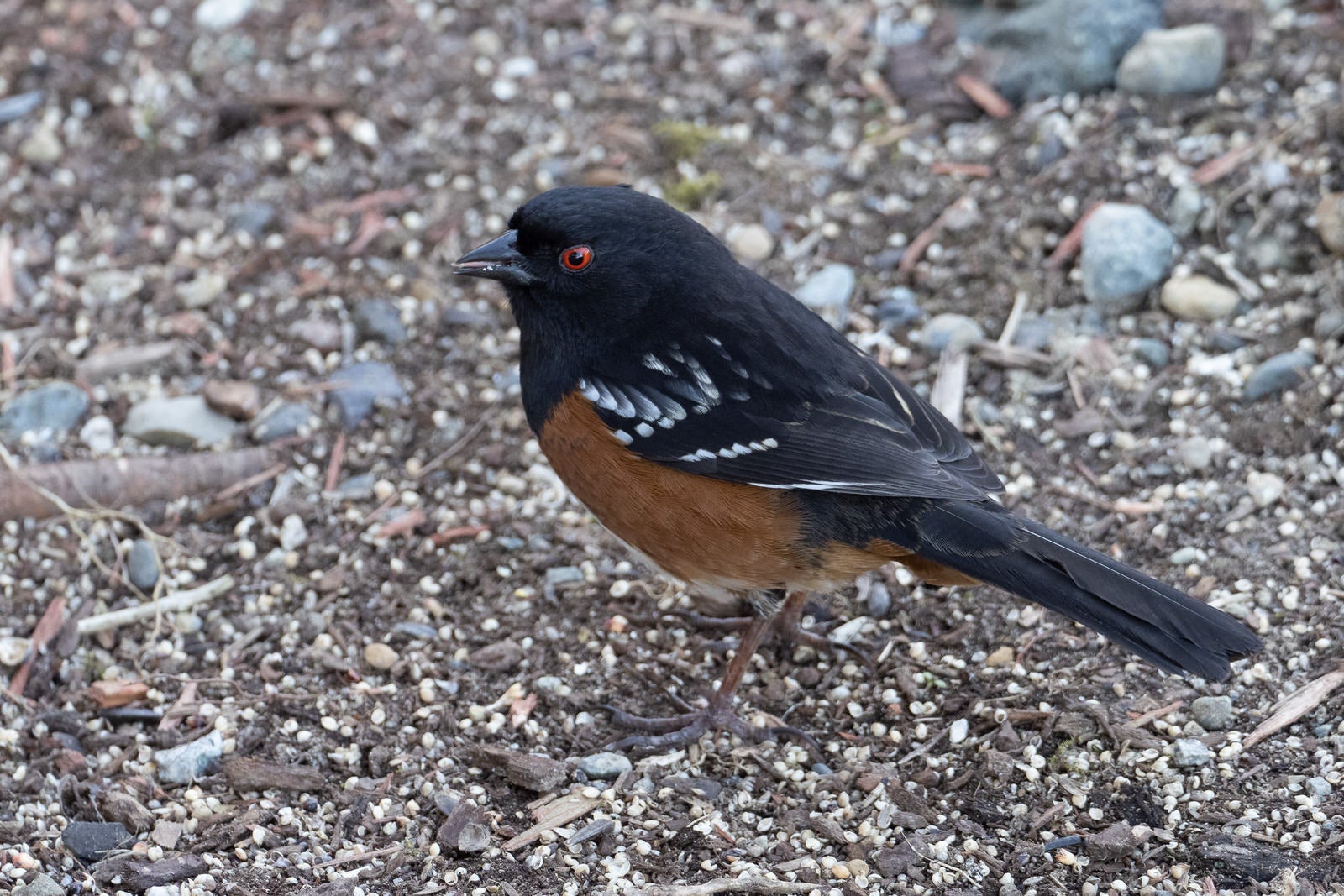
Photo by Mahesh Thapa. Sony α6600. Sony 75-350mm G lens at 350mm (525mm effective). 1/250-sec., f/6.3, ISO 1600.
The lens is dust and moisture resistant. My main focus is outdoor photography. The best lens in the world is useless to me, unless it is weather resistant and in my experience, I shot all day in rainy conditions with the 70-350mm attached to the α6600 with absolutely no problems whatsoever.
The Sony 70-350mm f/4.5-6.3 G lens provides the perfect compromise as far as reach, weight, size, and convenience. Whether you’re going to the zoo or taking pictures of some pretty birds in your backyard, this lens is a great choice to put in front of your APS-C Sony camera.
See more of Alpha Collective member Mahesh Thapa's work on Instagram @starvingphotographer.
